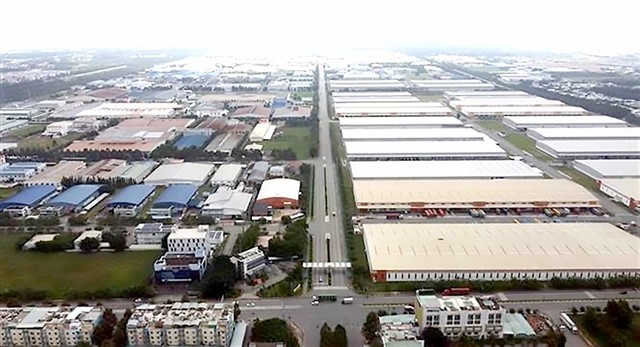Officials and experts discussed amendments on several investment laws to create more favourable conditions for investors, highlighting the need for simplifying and speeding up procedures.

Officials and experts discussed amendments on several investment laws to create more favourable conditions for investors, highlighting the need for simplifying and speeding up procedures.
The Ministry of Planning and Investment organised a conference on September 11 to seek opinions from localities in Southeast Việt Nam and the Mekong Delta on amendments to the Law on Planning, Law on Investment, Law on Investment with Public – Private Partnership (PPP) and Law on Bidding.
Officials discussed problems with policies on planning and attracting investment, and proposed mechanisms to attract more investment into prioritised areas.
Regarding the Law on Investment, the Investment Management Department proposed giving more authority to provincial level People’s Committees to approve investment projects, specifically projects that construct and operate infrastructure in industrial parks and build new ports or port areas with an investment of VNĐ2.3 trillion (US$93.6 million) or below.
Special investment procedures need to shift “from pre-inspection to post-inspection”, meaning authorities have to switch from simply issuing permits to projects that meet business regulations to actively guiding them to adhere to those regulations.
This will help speed up investment procedures and enhance Việt Nam’s competitiveness in attracting high-tech projects and projects in other prioritised areas.
An official from the Bình Dương Industrial Zones Authority noted that while it is important to create favourable conditions for investors, there should still be detailed regulations that investors have to adhere to, especially in order to enjoy special investment mechanisms.
As for investments with the PPP model, in order to resolve difficulties and perfect the legal framework to attract investment, the ministry is amending and adding more policies to encourage PPP for all public investment projects, aside from state monopoly projects or those related to national defense, security and social order.
The draft Law on Investment with Public-Private Partnership will also abolish the limit on the minimum investment capital to implement PPP projects and simplify procedures, promoting decentralisation of state management for PPP projects.
Meanwhile, the draft Law on Bidding will allow investors to approve and select contractors or sign contracts with them before the projects are approved or international treaties and foreign loan agreements are signed, which will speed up project implementation.
Ịt will also allow for “bidding packages that can choose contractors in special cases” to speed up the implementation process of projects and bidding packages that have special requirements on contract selection and cannot use other methods of selecting contractors.
On the same day, the ministry also organised another conference to discuss amendments to the Law of Public Investment, including increasing decentralisation of authority and helping projects that use official development assistance funds.
The draft amendments will allow for land clearance, compensation, and resettlement works of a project to be separated into its own independent project. Officials at the conference commended this move, saying that this will speed up large project implementation, but noted that this should not apply to small projects.
The draft law will also simplify the procedures for planning medium-term and annual public investment, as well as for capital appraisal. — VNS





